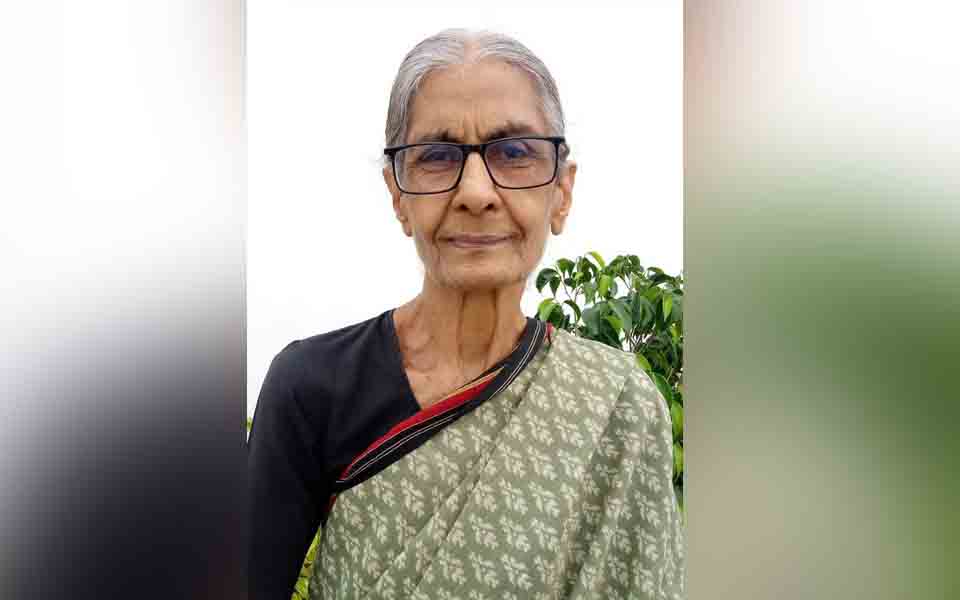New Delhi: The former Vice-Chancellor of Lucknow University Roop Rekha Verma had offered to stand surety for Kerala journalist Siddique Kappan as he is languishing in jail even after being granted bail by the Supreme Court days ago.
The SC had conditioned that Kappan should find two local sureties with each having Rs 1 lakh worth of value either in their account or by way of assets, Verma came forward offering the help.
Unable to find local sureties, 79-year-old Roop Rekha Verma came forward to help Kappan.
Kappan's lawyer Mohamed Dhanish told The Quint that local sureties became necessary because of the "sensitive nature of the case".
Though Kappan received bail in the Unlawful Activities Prevention Act case nine days before, people are "hesitant" to come forward to help the journalist, his lawyer reportedly said.
Kappan has been in jail for almost two years after he was arrested while on his way to Hathras in 2020 to report the gang-rape and death of a Dalit teenager by 'upper' caste men.
Professor Roop Rekha Verma, who distributes campaign pamphlets on the streets of Lucknow, wants to spread awareness among people to keep the spirit of the 1857 revolution alive, in order to maintain peace and brotherhood in the nation.
She evokes what is known in history as 'The Siege of Lucknow' a prolonged defense of the British Residency in Lucknow during the Indian Rebellion of 1857.
Professor Verma strives to shed light on the freedom struggle in order to keep the revolution of freedom alive, thus helping people not to forget history.
Let the Truth be known. If you read VB and like VB, please be a VB Supporter and Help us deliver the Truth to one and all.
Palghar (PTI): A 25-year-old woman with pregnancy complications delivered a baby in an ambulance with the help of a doctor onboard while being shifted from a rural hospital here to neighbouring Thane, officials said on Tuesday.
The Wada Rural Hospital in Maharashtra's Palghar district lacks specialised facilities for managing such critical maternity cases, its medical superintendent Dr Yadav Shekhare told PTI.
The "poor road conditions" further complicated the process of shifting the woman to a hospital in Thane for better care, he said.
The woman, Kalyani Bhoye, having intense labour pains, was brought to the rural hospital by her family early morning on December 13, he said.
The doctor on duty found the foetus' heartbeat was erratic and the child had already passed meconium (stool) in the womb, which is often a sign of foetal distress, the official said.
Recognising the severity of the situation, the attending doctor referred the woman immediately to the Thane Civil Hospital, located 75 km away, for advanced treatment.
The woman was promptly ferried in a fully equipped ambulance with a doctor onboard.
But, just 10 kilometres into the journey, the poor road conditions and bumpy terrain triggered the need for the woman's delivery inside the ambulance, the health official said.
The doctor onboard helped in the safe delivery of a healthy baby boy, he said.
Realising the need for immediate post-delivery care, the ambulance returned to the Wada Rural Hospital, where both the mother and the newborn boy were provided with further medical treatment, Dr Shekhare said, adding that both the mother and son were out of danger.
He said the rural hospital lacks specialised facilities required for such cases. Despite this, the hospital performs up to six deliveries every day, including two to three caesarean sections.
Dr Shekhare emphasised the need for improved infrastructure and equipment to better serve patients in remote areas.
While appreciating the doctors' efforts, he said the "poor road conditions" complicated the process of transporting the woman to Thane.
An explanation would be sought from the duty doctors to document the case, but their actions were in line with the commitment to provide the best possible care, he said.
Dr Shekhare praised the proactive approach of the doctors on duty, highlighting their commitment to saving lives despite limited facilities at the hospital.
"The doctors did not hesitate to refer the patient to a higher medical facility, prioritising her safety. Their decision, coupled with the presence of a doctor in the ambulance, ensured a smooth delivery under challenging conditions," he said.
After the woman's return to Wada hospital, a paediatrician promptly attended to the newborn, ensuring his health and stability, he added.




